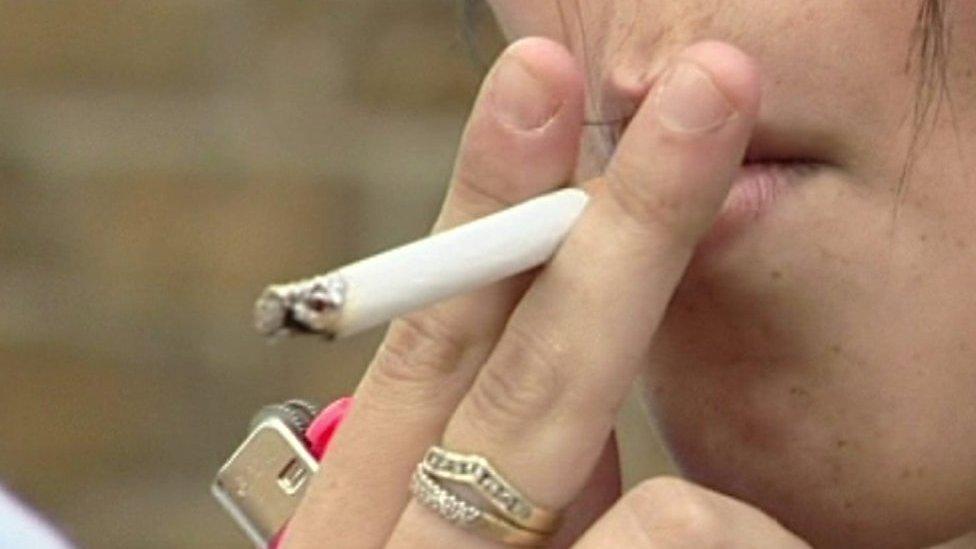Minimum price 'would increase cost of 70% of alcohol'
- Published
- comments
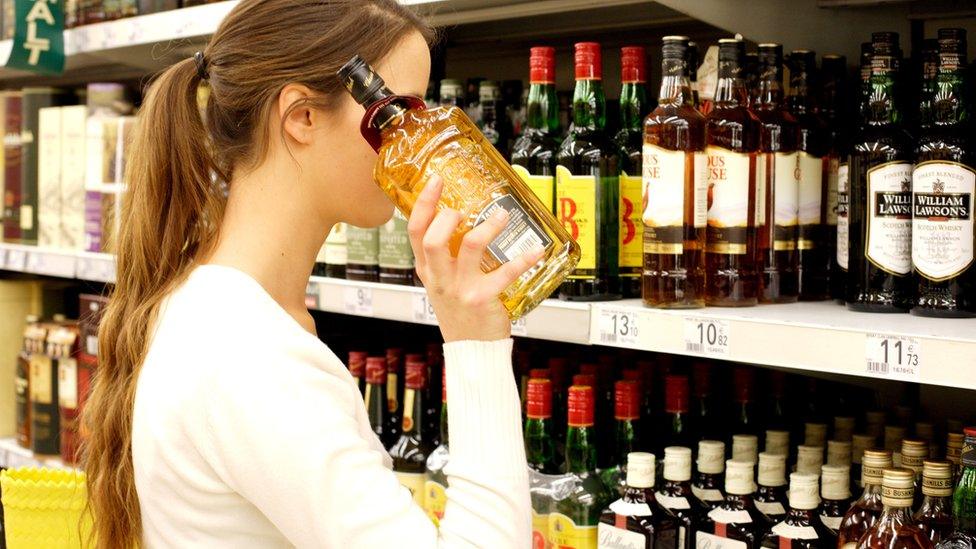
Introducing a minimum price per unit of alcohol would push up the cost to consumers of most alcohol, not just the cheapest strong drinks, according to researchers.
The Institute for Fiscal Studies (IFS) said a floor of 50p per unit would raise the cost of 70% of alcohol bought in shops.
It said there was a "strong case" for reforming alcohol duties instead.
The Scottish government is due to bring in a minimum price for alcohol in May.
It is consulting on its preferred rate of 50p per unit.
A similar policy is being considered by the Welsh National Assembly.
The IFS looked at what the impact on prices would be if a compulsory minimum price of at least 50p per alcohol unit were introduced, meaning that drinks that currently cost less than that would have to go up in price.
It found the average price rise would be about 35%, but low-cost lagers would increase by 44%, while most ciders would cost 90% more.
About 85% of lager and 80% of cider (measured by units of alcohol) are priced below 50p per unit.
The IFS said most wines, fortified wines and spirits also cost less than 50p per unit and would see their prices go up.
For example, a bottle of sherry containing 17.5 units of alcohol and sold for £7.15 by a supermarket would have to be sold for £8.75 if a minimum price of 50p per unit were introduced.
Twenty cans of cider containing 44 units of alcohol, currently available for £11, would double in price to £22.
The researchers concluded that a minimum price of 50p would have a financial impact on heavy drinkers who tend to buy cheaper and stronger alcohol. But it would also affect a large number of moderate drinkers.
'Dampen competition'
However, the IFS said "it may be better to reform duties and not have a minimum price at all".
It said minimum unit pricing had a "substantial disadvantage" because the policy was "likely to dampen competition in the retail market, resulting in increases in profits to the alcohol industry.
"In contrast, reform of alcohol duties that act to raise the price of strong products, as well as cider, is likely to raise tax revenue," it added.
Anomalies in the current UK alcohol duty system made it "chaotic", it said.
Beer and cider
At the moment, for example, EU rules mean wine and cider have to be taxed per litre, with the result they are taxed less per unit of alcohol than stronger drinks.
Separately, the tax on a litre of 7.5% beer is three times that on a litre of 7.5 % cider.
"A sensible reform that would substantially improve the system of alcohol duties would entail taxing directly the alcohol in wine and cider (a move which exiting the European Union will presumably make legally feasible) and increasing the tax on cider to bring it in line with that levied on beer," it said.
Any change to the system of alcohol duty would be under the control of government in Westminster.
- Published29 November 2017
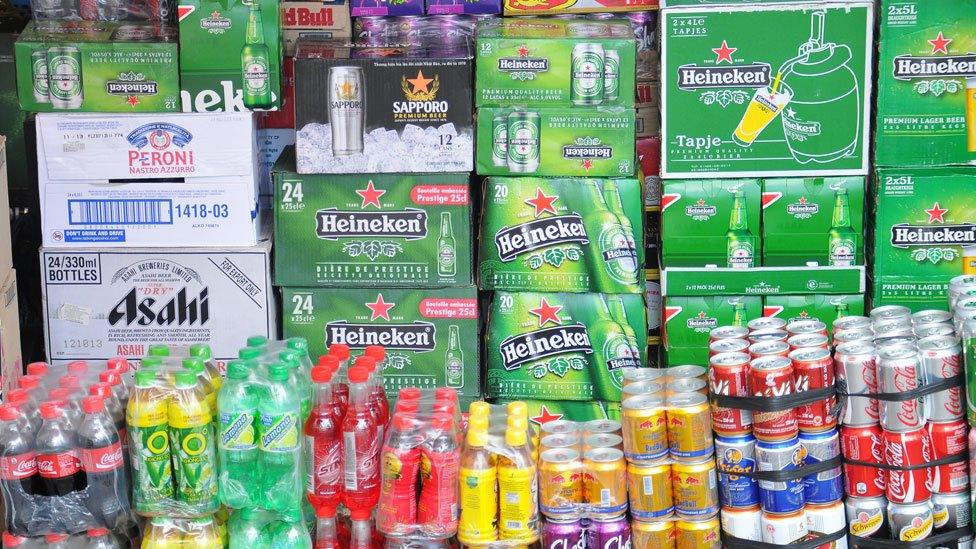
- Published15 November 2017
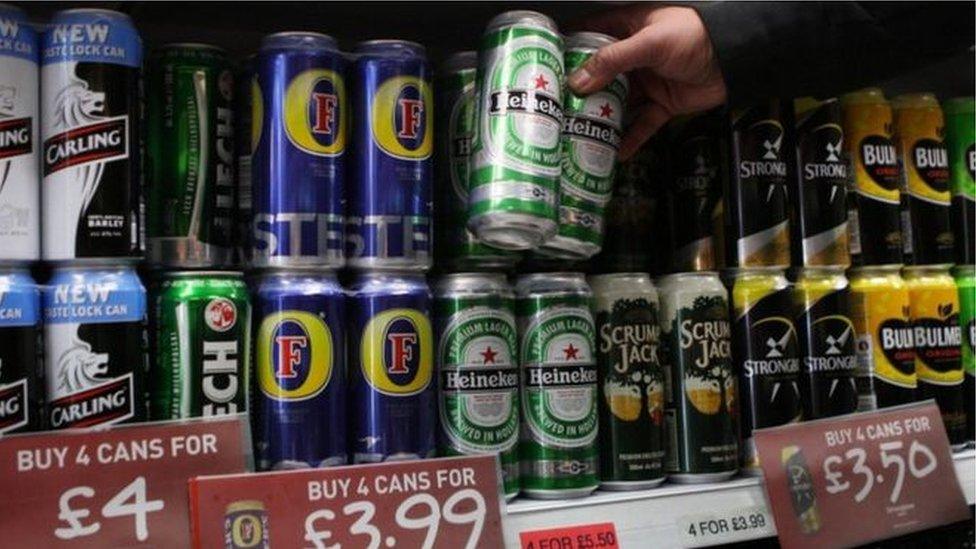
- Published16 November 2017
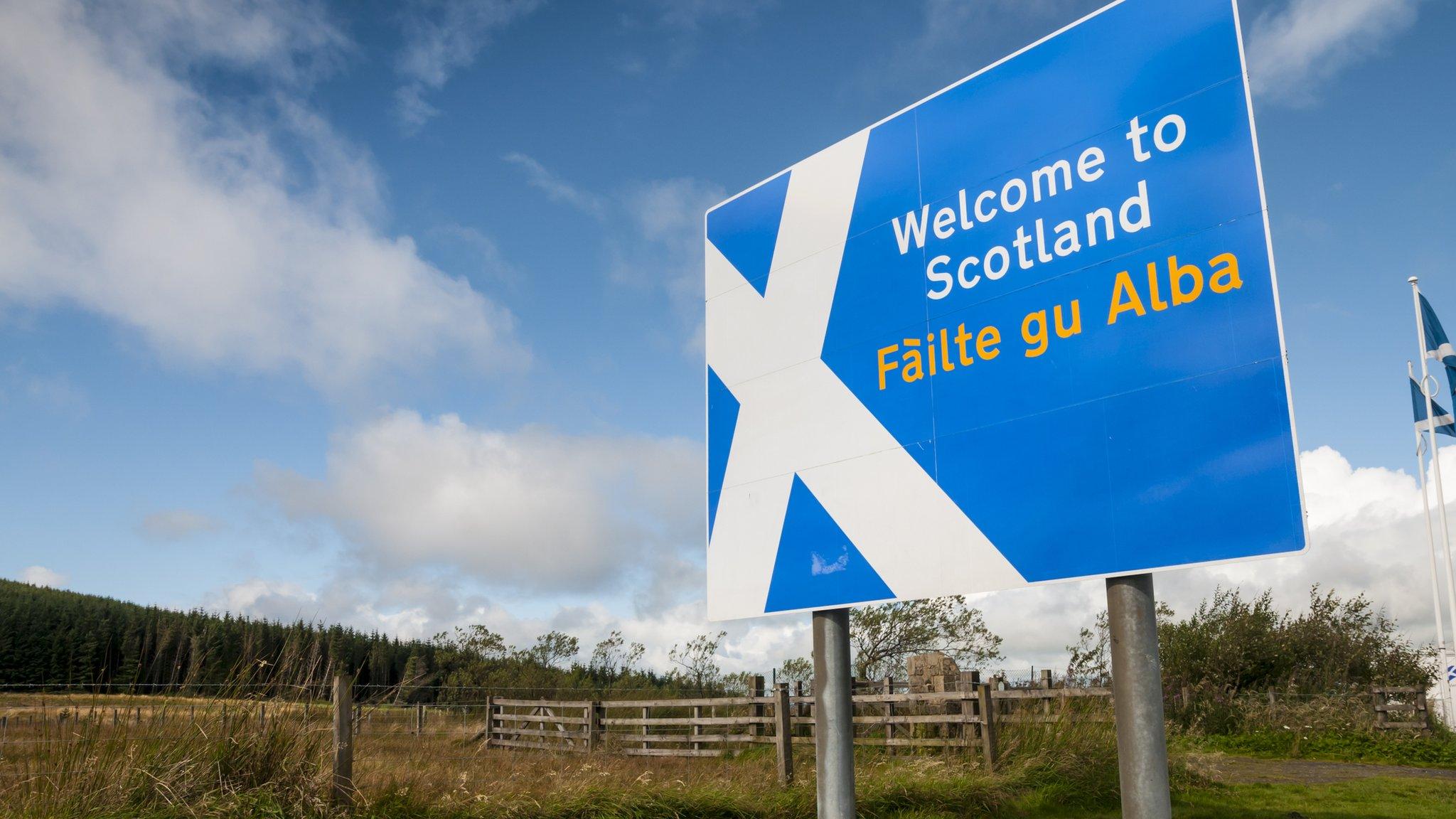
- Published23 November 2017
